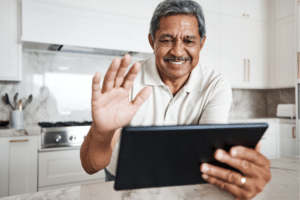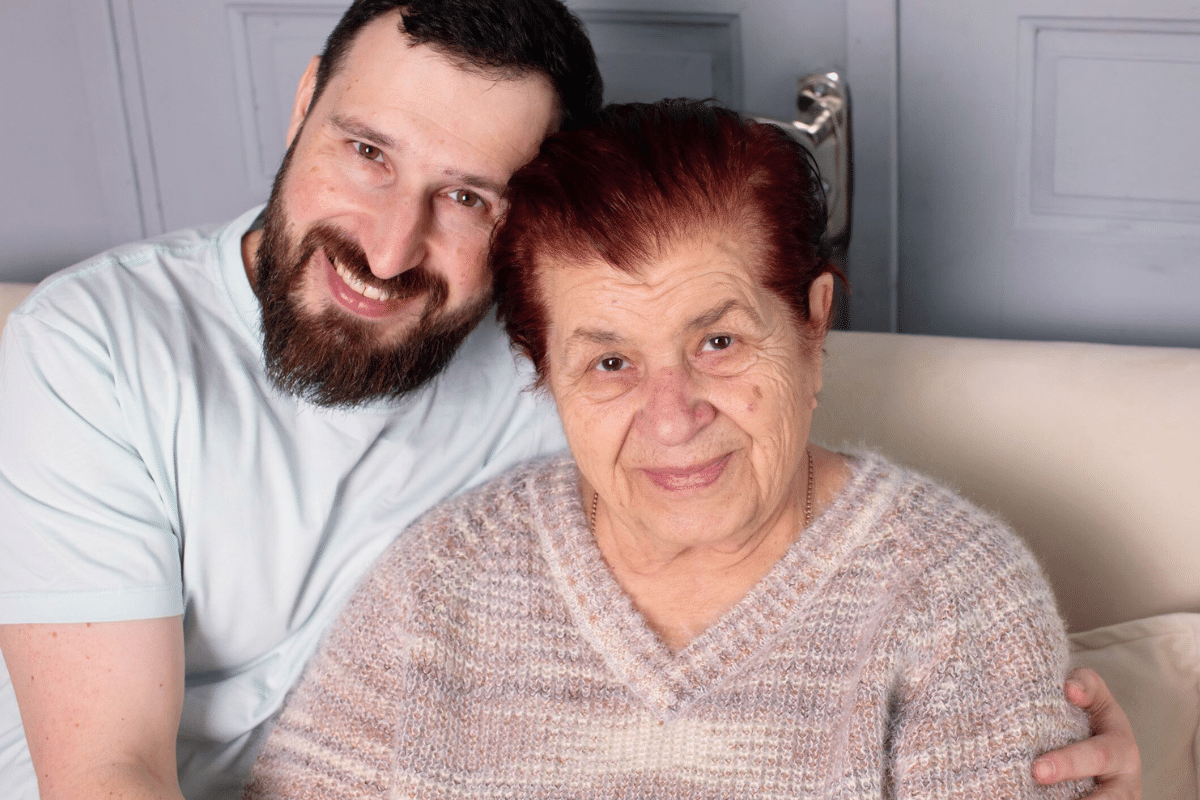November is National Alzheimer's Awareness Month, a dedicated time to shed light on the impact…

The problem of loneliness in seniors was exacerbated by the COVID-19 pandemic, which made social isolation even more difficult to avoid. In 2023, the United States Surgeon General Dr. Vivek Murthy went so far as to issue a nationwide advisory on loneliness. In the report, he declared loneliness an epidemic and a major public health concern.
More Than Half of Seniors Feel Lonely
Most of us aspire to live a long and healthy life, enjoying time with our loved ones and in our community. Yet for many aging adults, long lives may also come with the grief of outliving loved ones, as well as increased difficulty maintaining connections due to the normal effects of aging. In fact, more than half of Americans 65 and older say they feel lonely.
Failing to maintain and make new, meaningful connections can lead seniors towards a deep sense of loneliness. This can affect their mental and physical health, including putting them at increased risk of conditions such as heart disease, Parkinson’s disease, and dementia. Dr. Murthy’s report on loneliness states that lacking social connections may be comparable to smoking as many as 15 cigarettes a day.
Risk Factors for Loneliness Among Older Adults
Several risk factors can contribute to loneliness among people 65 and over. These risk factors include the following:
- Grieving the loss of a loved one
- Experiencing physical or mental difficulties
- Being an immigrant who has lost touch with their home country
- Belonging to a minority background
- Living alone
- Lacking the financial means to do various activities
- Not having meaningful outlets for one’s talents
- Serving as a full-time caregiver
- Struggling with incontinence
- Lacking the ability to drive or take public transportation
- Facing a communication barrier
- Feeling depressed or anxious
Overcoming Loneliness with Meaningful Social Engagement
The first step to overcoming loneliness is acknowledging it and understanding the need to change some habits. If you are the one feeling socially disconnected, think about small ways you can foster a culture of connection in your life. Even the smallest positive change matters. Consider:
- Joining a club, class, or religious institution to get to know people with similar interests.
- Invite one or two friends over to share a meal, watch a movie, or play cards.
- Try an exercise class geared toward senior citizens or persons with limited mobility.
- Take a class on learning how to use social media and digital devices.
- Call or visit a family member or friend.
- Volunteer your time at a school, animal shelter, or place of worship.
- Foster or adopt a pet.
- Get a job that you enjoy.
- Remember that everyone needs physical contact, too – don’t be shy about asking your loved ones for a hug!
Other Possibilities
Struggling seniors may also need professional help to get comfortable re-engaging socially. Dealing with issues such as grief or physical or mental infirmity can have an adverse impact on mental health, making loneliness more difficult to overcome. Thankfully, starting in 2024, more than 400,000 mental health professionals, such as counselors and therapists, now accept Medicare as a source of payment, making it easier than ever for seniors to access mental health care.
Seniors may also consider changing their living arrangements to make interactions easier. Even the most loving family members will not be able to visit as often when there is significant physical distance involved. Some seniors find that they love residential programs with communal dining, planned outings, and frequent activities. Others prefer living with a family member or in a senior citizen community where everyone has their own space.
If you would like to speak with an experienced elder law attorney regarding your situation or have questions about something you have read, please do not hesitate to contact our office at 1 (800) 680-1717. We look forward to the opportunity to work with you.




Comments (0)